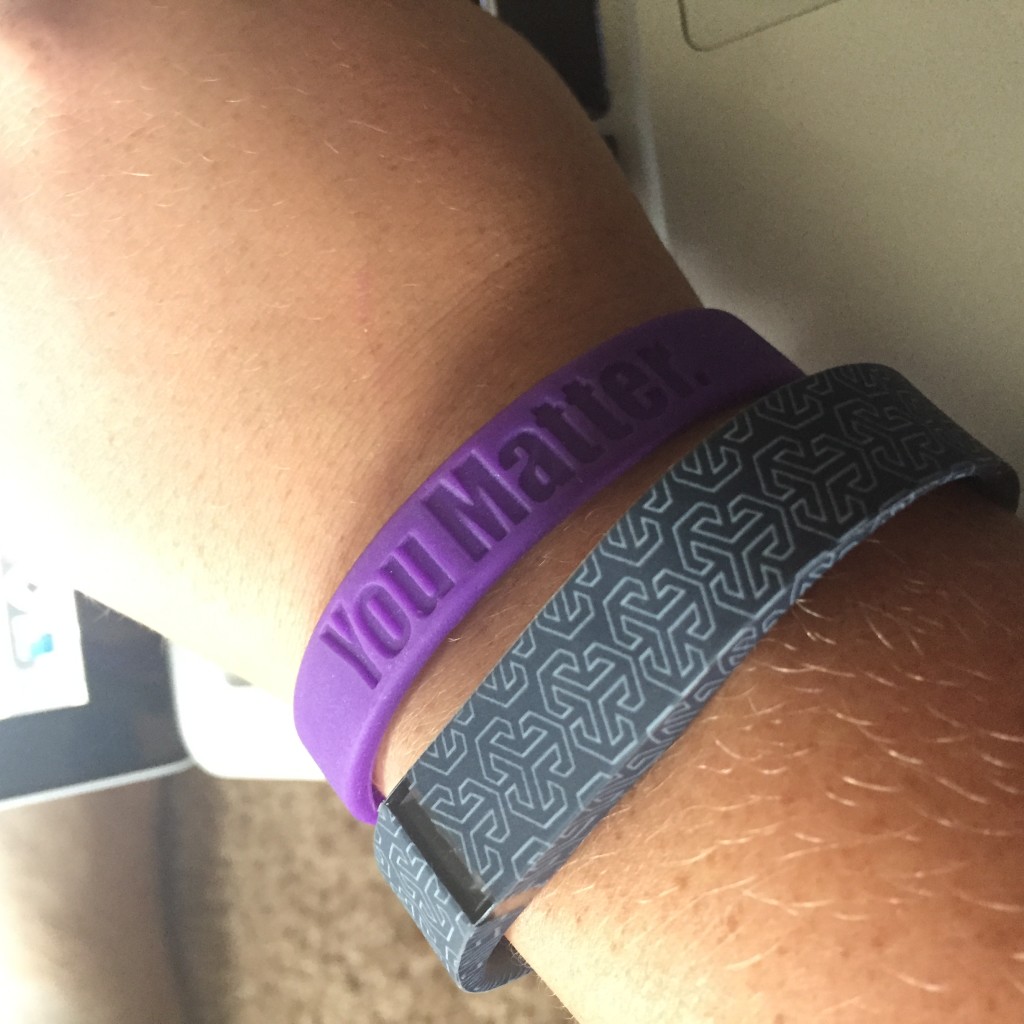Speech-Language Pathologist, friend, advocate, counselor. SLPs wear many hats for our patients. That last one, counselor, is one we don’t get a ton of training for. I remember one or two classes that focused on the topic at a few points, but certainly not enough to feel prepared to help patients with significant mental health concerns. During any given year, 25 percent of adults and 20 percent of teens experience a diagnosable mental illness, yet more than half will go without services for their condition, according to the National Alliance on Mental Illness.
No matter if you work with elementary student, high schoolers, or adult rehab patients, every SLP will experience clients with mental health issues. Some of those will be mild, but some might be significant. The vast majority of people with communication disorders are not at risk for suicide, and determining suicidal risk does not fall within the scope of practice for SLPs or audiologists. Although most of your clients are not at risk, you might experience it at some point in your career. SLPs are mandated reporters. Have you thought about how you would react if someone confided in you?
I’m not claiming to be someone who is experienced in helping those with mental health problems. Luckily, there are tons of resources for you! Start with this article from Donaher and Scott about making an emergency plan for what to do if this situation arises. Here are a few more
Resources
-
National Alliance on Mental Illness, www.nami.org
-
National Association of School Psychologists, bit.ly/nasp-suicide
-
U.S. Centers for Disease Control and Prevention,www.cdc.gov/violencePrevention/suicide
-
American Foundation for Suicide Prevention, www.afsp.org
-
National Institute of Mental Health, bit.ly/nimh-suicideprevention
-
U.S. Department of Veterans Affairs, bit.ly/va-suicide
-
National Suicide Prevention Lifeline, www.suicidepreventionlifeline.org
I’m not an expert in counseling but my cousin, Shannon (who is a PT!), has some seriously awesome ideas for making a difference one person at a time. After suicide touched our family, she took action!
Shannon started a company with one mission… to let people know they matter. “My hope is that by wearing a shirt you may directly cross paths with somebody who is in dire need of this message. Maybe it will give them home to live another day, to seek help, to open up to their family and friends. Small messages can make big impacts on lives around us, let’s spread this message like wildfire!”
I’ve already worn my t-shirt and loved the smiles it got at the car dealership. A purple bracelet might lead you into a conversation with a client that makes a difference in his/her life. A chance to start a conversation and tell your student that he/she matters to you.
You can find the You Matter, LLC. shop on Etsy. A part of each sale goes to support suicide prevention. Take a peek and help spread the message!
Leave me a comment and let me know how you’re telling your students YOU MATTER!
Source: Be Prepared to Help At-Risk Clients. The ASHA Leader, May 2014, Vol. 19, 52-58. Donaher, J & Scott, L.
Join the SRN newsletter!

I'm so glad you stopped by! If you'd like to keep up with the newest posts and get exclusive free downloads, please sign up for the newsletter! Your first freebie is ready as soon as you subscribe and confirm your email!



I have students who tell me things they wouldn’t tell anyone else. I have only been at my school for one year and I have an extremely close bond with my students. I never let anyone leave speech angry, and if I spot a student in the halls that looks upset, I am right by their side. At the end of the day, I hug them and tell them I love them before they board the bus. I feel like I’ve developed a sincere bond with my students. Last week, my school had a suicide/depression awareness and prevention training.I left knowing that I am doing all I can to make sure my students know they are cared for.
I love hearing that you’ve gotten training! What a great district initiative!
Jenna, I am sorry that suicide touched your family. I agree with you that our caring may make a difference, but it is also important to know how and when to act. Thanks for the resources and I wish Shannon lots of luck!
Thanks Jenna for sharing about this topic. I know that when I worked at the middle school and high school level, a lot of topics and situations came up that weren’t directly related to speech and language treatment. Thanks for all the resources and insight!
Thanks, Felice!
Thanks for posting this. While, thankfully, I haven’t yet had a student express suicidal thoughts, I have found myself deciding it’s more important to let a student talk about serious issues in his/her life (sister ran away again, father was arrested, etc) than practice grammar for a session. This happened more often when I worked at a charter school with no other support staff (no guidance counselors, school psychologists, etc.). But even at schools with support staff, sometimes we are the only adults with whom the child feels comfortable talking. I had no training on anything relevant to these issues in school and wish I had. This is definitely an issue that needs more attention.
I agree! Life issues > grammar!
Sweet Jenna-
Thank you for helping me to spread this simple message. You are precious and priceless and I appreciate the very thoughtful and well written blog post. It’s amazing how walls come crashing down when you open up the floor for discussion. And just how many people are directly or indirectly effected by suicide has been quite an eye opener for me.
You rock…it’s a simple as that. Oh, and YOU MATTER!!
Love you to bits,
Shannon
And that was affected, grammar matters;)
Thank you for posting about this. Suicide has unfortunately touched my husband’s family, and my little brother had one of his good friends commit suicide at age 11 or 12. I know someone else that has attempted, as well. Such an important topic that needs to be discussed! I had one class period discussion on counseling, and that was it. Definitely wish I would have had more! At one of my practicum sites, I had someone tell me I could have been taking data in conversation when the kid came to see me and talked about being bullied at school and how no one cared, no one listened, etc. I felt like it was more important just to listen and let him know he had someone on his team. We as SLPs wear many hats, and counselor is definitely one of them.. Counseling parents when their child is first given a diagnosis, counseling students having trouble at school and/or home, heck, often times I’m even talking coworkers through really stressful periods… It’s an important role that no one really prepares you for. I believe they do suicide prevention training in my district at the middle and high school, but at the elementary level, it’s predominantly bully prevention that’s the focus. I think it should be implemented across all grade levels, though! Thanks for sharing, and will definitely check out that shop on Etsy!
Hey Kari! Thanks for commenting. I agree, sometimes it’s much more important to be a listening ear than to drill therapy for the day. Thanks for visiting!
The world has a way of showing you how small it really is. I’m a professor (and speech language pathologist) along with a co-founder of the University of Akron Campus walk for Suicide Prevention (AFSP). Just last week we (our friends and the stuttering community) lost a dear friend of ours, David, who died by suicide. Searching for answers to “why” tends to leave us empty handed, when the what we can do instead is pick up where others left off, which is what we will do.
The above article by Joe Donaher and Lisa Scott is great place for SLPs to start, written by two wonderful therapists.
Thanks for this post.
With compassion and kindness,
Scott
Hi Scott! Wow! And you’re just up the road from me in Ohio! I’m sorry to hear about your friend, David. It’s a very difficult thing to lose a loved one to suicide. My thoughts are with you!
Jenna
Jenna,
I love this idea. You are right, as SLP’s we do not get a lot of training in the area of counseling. Yet, I see many students struggle with self-confidence due to learning challenges. Bullying in schools is also becoming more prevalent also. As SLP’s we trained to diagnose people and therefore we are good at “reading people.” As someone mentioned above…they tell us everything! I appreciate you bringing a light to this. I will check out the Etsy store to support a great cause.
They sure do tell us everything! Thanks for reading Ashley!
The link you posted for the etsy store isn’t working for me and I can’t find the store on etsy. Thanks
I think it’s fixed!
Great post, Jenna! I agree, we aren’t given the training we need in this area. We work with so many kids with social language issues that often morph into emotional issues because of their struggles and experiences. This cannot be discounted. Great work promoting awareness.
Love this post and the write up in the recent ASHA Leader. I have been an SLP for 7 years and just recently started working as an SLP in a pediatric mental health facility. I’m thankful to be getting so much training and education in the world of mental health because so many of the kids we see are also dealing with emotional and behavioral difficulties. A lot of my work is also focused on parent education on the link between mental health and speech/language difficulties. Keep up the great work!
What a wonderful post and a great idea. Some may not be strong enough to say it but can show it by wearing a band.
Northern Speech Services (NSS), in January 2016 made available a new online 4-unit CEU course presented by Paul Fogle, Ph.D., CCC-SLP, on “Counseling Skills for Rehabilitation Professionals” (SLPs, OTs, PTs, RTs, . . .). In the course Dr. Fogle presents a significant amount of information, including many specifics things we can do, when a child or adult mentions suicide ideation. The discussion is based on information presented in his 2012 text, Counseling Skills for Speech-Language Pathologists and Audiologists.
I work in a pediatric psychiatric hospital and suicidial ideation is a big cause of many of the admissions. Many of the kids have undiagnosed or high functioning autism spectrum disorder, and struggle with social skills and pragmatics. We are required to take a course called Youth Mental Health First Aid, I would look into it if it is available in your community! It’s a great resource.
Our state (TN) requires that we have training in suicide prevention every year as part of staff development. The last couple of years we have done self-study only (videos), but The Jason Foundation has an excellent series. I love your “You Matter” items.